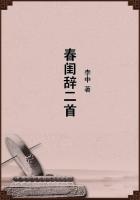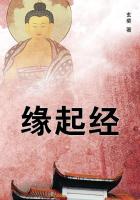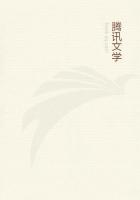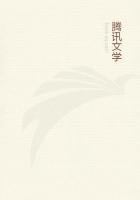The latter etymology is confirmed by the words boulesthai, boule, aboulia, which all have to do with shooting (bole): and similarly oiesis is nothing but the movement (oisis) of the soul towards essence. Ekousion is to eikon--the yielding--anagke is e an agke iousa, the passage through ravines which impede motion: aletheia is theia ale, divine motion. Pseudos is the opposite of this, implying the principle of constraint and forced repose, which is expressed under the figure of sleep, to eudon; the psi is an addition. Onoma, a name, affirms the real existence of that which is sought after--on ou masma estin. On and ousia are only ion with an iota broken off; and ouk on is ouk ion. 'And what are ion, reon, doun?' One way of explaining them has been already suggested--they may be of foreign origin; and possibly this is the true answer. But mere antiquity may often prevent our recognizing words, after all the complications which they have undergone; and we must remember that however far we carry back our analysis some ultimate elements or roots will remain which can be no further analyzed. For example; the word agathos was supposed by us to be a compound of agastos and thoos, and probably thoos may be further resolvable. But if we take a word of which no further resolution seems attainable, we may fairly conclude that we have reached one of these original elements, and the truth of such a word must be tested by some new method. Will you help me in the search?
All names, whether primary or secondary, are intended to show the nature of things; and the secondary, as I conceive, derive their significance from the primary. But then, how do the primary names indicate anything? And let me ask another question,--If we had no faculty of speech, how should we communicate with one another? Should we not use signs, like the deaf and dumb? The elevation of our hands would mean lightness--heaviness would be expressed by letting them drop. The running of any animal would be described by a similar movement of our own frames. The body can only express anything by imitation; and the tongue or mouth can imitate as well as the rest of the body. But this imitation of the tongue or voice is not yet a name, because people may imitate sheep or goats without naming them.
What, then, is a name? In the first place, a name is not a musical, or, secondly, a pictorial imitation, but an imitation of that kind which expresses the nature of a thing; and is the invention not of a musician, or of a painter, but of a namer.
And now, I think that we may consider the names about which you were asking. The way to analyze them will be by going back to the letters, or primary elements of which they are composed. First, we separate the alphabet into classes of letters, distinguishing the consonants, mutes, vowels, and semivowels; and when we have learnt them singly, we shall learn to know them in their various combinations of two or more letters; just as the painter knows how to use either a single colour, or a combination of colours. And like the painter, we may apply letters to the expression of objects, and form them into syllables; and these again into words, until the picture or figure--that is, language--is completed. Not that I am literally speaking of ourselves, but I mean to say that this was the way in which the ancients framed language. And this leads me to consider whether the primary as well as the secondary elements are rightly given. I may remark, as I was saying about the Gods, that we can only attain to conjecture of them. But still we insist that ours is the true and only method of discovery; otherwise we must have recourse, like the tragic poets, to a Deus ex machina, and say that God gave the first names, and therefore they are right; or that the barbarians are older than we are, and that we learnt of them; or that antiquity has cast a veil over the truth.
Yet all these are not reasons; they are only ingenious excuses for having no reasons.
I will freely impart to you my own notions, though they are somewhat crude:--the letter rho appears to me to be the general instrument which the legislator has employed to express all motion or kinesis. (I ought to explain that kinesis is just iesis (going), for the letter eta was unknown to the ancients; and the root, kiein, is a foreign form of ienai: of kinesis or eisis, the opposite is stasis). This use of rho is evident in the words tremble, break, crush, crumble, and the like; the imposer of names perceived that the tongue is most agitated in the pronunciation of this letter, just as he used iota to express the subtle power which penetrates through all things. The letters phi, psi, sigma, zeta, which require a great deal of wind, are employed in the imitation of such notions as shivering, seething, shaking, and in general of what is windy. The letters delta and tau convey the idea of binding and rest in a place: the lambda denotes smoothness, as in the words slip, sleek, sleep, and the like. But when the slipping tongue is detained by the heavier sound of gamma, then arises the notion of a glutinous clammy nature: nu is sounded from within, and has a notion of inwardness: alpha is the expression of size; eta of length; omicron of roundness, and therefore there is plenty of omicron in the word goggulon. That is my view, Hermogenes, of the correctness of names; and I should like to hear what Cratylus would say.

